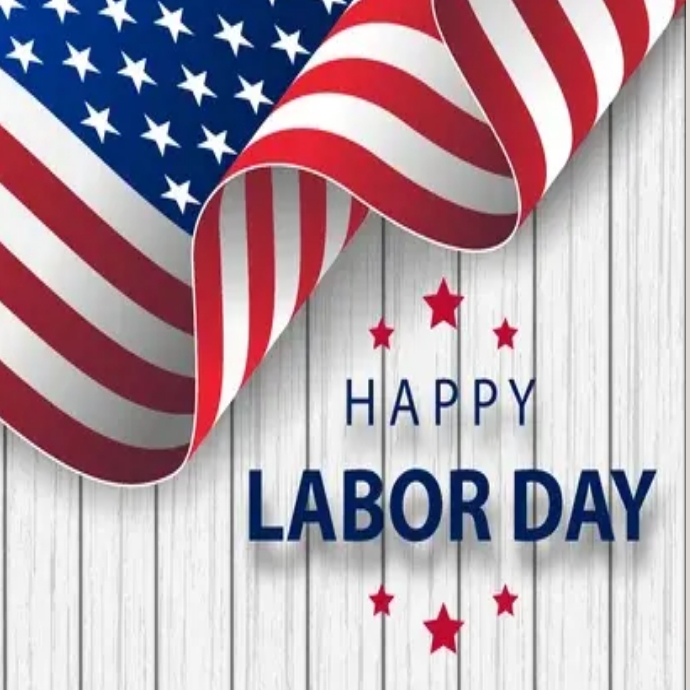Intro
Labor Day is more than just a long weekend marking the unofficial end of summer; it is a day dedicated to honoring the contributions of workers across the nation. Each year, we take this opportunity to reflect on the achievements and sacrifices made by those who have fought for fair labor practices and improved working conditions. As we celebrate Labor Day, it’s essential to understand its historical significance, how it is celebrated today, and what it means for the future of our workforce.
The Historical Origins of Labor Day in America
Labor Day has deep roots in the labor movement of the late 19th century, a period marked by rapid industrialization and the rise of labor unions. During this time, workers faced grueling conditions, with long hours and meager pay. To combat these hardships, labor unions emerged as advocates for better working conditions and fair wages. The first Labor Day celebration took place in 1882 when the Central Labor Union of New York City organized a parade to honor the labor force’s contributions. This event laid the groundwork for an annual tradition that spread across the nation.
In 1894, following a period of significant labor unrest and the Pullman Strike, Congress passed legislation making Labor Day a federal holiday. This act recognized the critical role workers played in the economy and underscored the government’s commitment to labor rights. Celebrated on the first Monday in September, Labor Day has since evolved into a national day of recognition for the achievements and sacrifices of the labor movement.

Why Labor Day Is More Than Just a Long Weekend
While many people view Labor Day as an opportunity for a three-day weekend filled with barbecues, parades, and shopping sales, the day carries deeper significance. It serves as a reminder of the ongoing fight for workers’ rights and the importance of labor in our economy. This day encourages reflection on the achievements made in labor rights, such as the establishment of the eight-hour workday, minimum wage laws, and workplace safety regulations.
Moreover, Labor Day reminds us of the challenges that still exist for many workers today. Issues such as wage stagnation, job insecurity, and workplace discrimination remain prevalent. The day encourages us to advocate for fair treatment and better working conditions for all, ensuring that the progress made by past generations is not lost. By recognizing the importance of labor and the struggles workers continue to face, we can promote a more equitable society.
How Labor Day Is Celebrated Across the United States
Celebrations for Labor Day in the United States reflect the nation’s cultural diversity and regional traditions. Parades remain a popular way to honor the day, with cities across the country hosting elaborate events featuring floats, marching bands, and speeches from labor leaders. These parades often serve as platforms to highlight current labor issues and advocate for workers’ rights.
Beyond parades, many families use the long weekend to engage in outdoor activities like picnics, barbecues, and camping trips. Some people take this time to relax at home or spend quality moments with loved ones, making it a valued period for connection and reflection. Communities often organize fairs, concerts, and other local events to celebrate workers’ contributions.
Volunteerism is another important aspect of Labor Day celebrations. Many individuals and organizations take the opportunity to support their communities through acts of service, whether it’s donating time, resources, or money. This spirit of cooperation and solidarity underscores the holiday’s core values, echoing the collective strength that has historically driven the labor movement.
The Economic and Social Impact of Labor Day
Labor Day underscores the crucial role workers play in our economy and society. As we reflect on the labor movement’s accomplishments, it’s essential to acknowledge the economic contributions made by workers across diverse industries, from manufacturing and agriculture to education and healthcare. These workers form the backbone of our economy, driving innovation and sustaining growth.
Socially, the labor movement has been instrumental in advancing civil rights and social justice. The quest for workplace equality often mirrors broader struggles for social change, highlighting the interconnectedness of these issues. The labor movement has not only improved working conditions but also played a vital role in championing civil rights and social justice.
Additionally, the collective power of labor unions has helped to establish a robust middle class in America. By fighting for fair wages, comprehensive benefits, and safer working conditions, labor organizations have significantly improved the quality of life for countless families. This influence extends beyond mere economic gains, fostering social stability and cohesion within communities.
Labor Day also prompts us to consider the challenges workers still face, such as wage stagnation and job insecurity, while celebrating the strides made. The day serves as a poignant reminder of the ongoing need to advocate for fair treatment and improved working conditions, ensuring that the progress achieved by past generations continues to benefit future ones.
The Future of Labor Day and the Evolving Workforce
As we look to the future of Labor Day, we must consider the rapidly evolving workforce. Technological advancements and shifts in the job market are transforming how we work. The rise of the gig economy, remote work, and automation presents new challenges and opportunities for workers. This changing landscape necessitates a renewed focus on advocating for job security, fair wages, and robust protections for all workers, especially those in non-traditional roles.
Labor Day can serve as a rallying point to address these contemporary issues. By spotlighting the importance of adapting labor rights to modern conditions, we can ensure that the progress made by previous generations continues to benefit future workers. Additionally, educating young people about the history and significance of the labor movement can inspire a new generation of activists committed to fighting for fair treatment and equitable working conditions. This ongoing advocacy is crucial for fostering a resilient and inclusive workforce that can adapt to future challenges while upholding the values that Labor Day represents.


Comments are closed